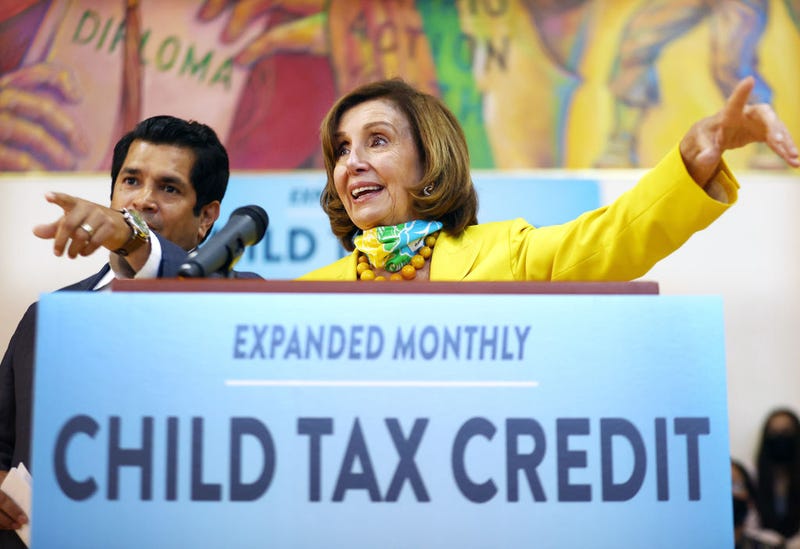
Families across the U.S. will begin receive their first federal Child Tax Credit payment on Thursday. However, qualifiers should be aware of some critical changes included in the advanced monthly deposit.
"The credit is not really new," Chief Tax Officer Mark Steber told KCBS Radio. "It’s the same Child Tax Credit that’s been around since 1997 to help parents and people with families off-set their costs. But, under the American Rescue Plan Act, the Child Tax Credit was supersized."
The American Rescue Plan Act was signed into law on March 11, responsible for the COVID-19 stimulus package as well as expansion of the Child Tax Credit, providing major tax relief.
Some of the changes made under the act include increasing payments from $2,000 to $3,600 for each child under six years old, and to $3,000 for children six to 17. Taxpayers will also no longer need to have any income or tax liability to get the credit fully refunded.
Overall, the most important change may be the advance payment of up to half the credit over a six-month-period. "In a simple situation with one child and $3,600 credit, the qualifier would get $1,800 upfront and $300 payments in the next six months," Steber explained.
However, Steber warned, the Child Tax Credit is not like the stimulus checks.
With the stimulus payments people were awarded a "kind of get-out-of-jail free card," he said. "If you got the money, you got to keep it no matter what." But, with the Child Tax Credit people may find themselves indebted to the IRS at the end of the year if they are not careful.
The IRS will base the Child Tax Credit payments on income shown on 2020 returns, so if a taxpayer was having a rough year amid COVID-19, but now is making more income, it could lead to some surprises at the next tax filing day.
For single taxpayers, the maximum income is $75,000, married couples are phased out at $150,000 and unmarried individuals with a dependent can make up to $112,500.
"These are pretty big numbers," Steber acknowledges, "but you can get up to that quite fast if you’re having a good year."
"Unfortunately, for a lot of people, tax time is the only time that they consider their taxes," said Steber. He warns that people who qualified for the Child Tax Credit in 2020 may start to see an influx of $300 in their account each month and not know what it is. "Worst case, these people no longer qualify for the tax-relief and will have to pay it back later."
"This is a really good year to pay a little bit more attention to your taxes," the chief tax officer affirmed. "The stakes have never been higher."
For people concerned that they are no longer eligible for the Child Tax Credit, there is an option to opt-out at the IRS website.

